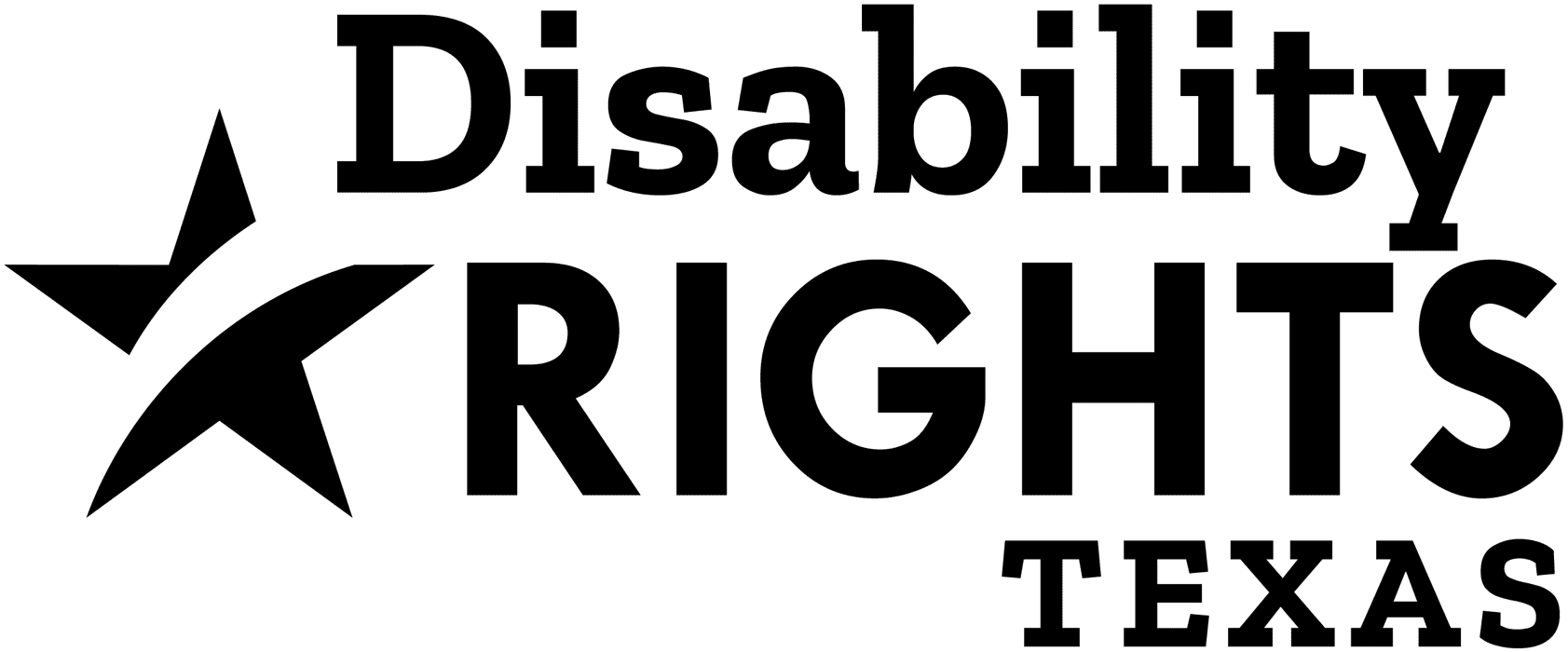
FOR IMMEDIATE RELEASE:
July 22, 2020
CONTACT:
Edie Surtees, Communications Director, 512-407-2739, esurtees@drtx.org
Laurel Goodroe, Communications Specialist, 832-681-8215, lgoodroe@drtx.org
Advocacy Groups and Five Individuals File Discrimination Complaint Over COVID-19 Treatment Rationing Guidelines in North Central Texas
Rationing Guidelines that Affect Almost 8 Million Texans Harm Adults and Children with Disabilities, Persons of Color, and Older Adults
AUSTIN — As COVID-19 cases surge in Texas, hospitals in 18 counties in North Central Texas—with a total population of almost 8 million—may begin rationing medical resources using crisis standards of care that discriminate against children and adults with disabilities and co-morbid medical conditions, as well as individuals from communities of color, prisoners, and older adults. The crisis standards of care adopted by the North Central Texas Trauma Regional Advisory Council (NCTXTRAC) violate federal disability laws, including the Americans with Disabilities Act (ADA), Section 504 of the Rehabilitation Act, the Age Act, and Section 1557 of the Affordable Care Act. The Texas Department of State Health Services (DSHS) oversees the NCTXTRAC.
Because of their grave concerns that the use of the discriminatory crisis standards in North Central Texas will cost lives, Disability Rights Texas, The Arc of Texas, ADAPT of Texas, the Coalition of Texans with Disabilities, Texas Appleseed, and Protect Texas Fragile Kids, along with five individuals with disabilities, have filed a Complaint against the NCTXTRAC and DSHS with the U.S. Department of Health and Human Services Office for Civil Rights (OCR) requesting immediate action to address this discrimination.
The Complaint sets out how the Guidelines dramatically increase the likelihood that individuals with disabilities, older adults, and individuals from communities of color will be denied life-saving care based on discriminatory assumptions about their quality of life or structural inequities that may impact overall life expectancy.
Blake Pyron, one of the complainants who would be covered by the Guidelines, is 24 and lives with Down syndrome, a heart condition, and sleep apnea. His mother, Mary Ann, said that, “As Texas families face these uncertain times, I fear my sons will not receive equal lifesaving medical treatment. The fear comes from my youngest son living with Down syndrome, one extra chromosome more than his big brother.”
Julie Espinoza, another complainant, said that, “I feel that the medical system has very low expectations of what the quality of my life is. If I was in need of assistance with covid-19 care, I have a very strong fear that because of my multiple disabilities they would deny me medical care for the virus.”
“Rationing healthcare for individuals with disabilities is unacceptable, and The Arc of Texas joins others to demand that harmful and discriminatory practices are prohibited during the COVID-19 pandemic and all future emergencies,” said Ginger Mayeaux, Director of Public Policy & Advocacy with The Arc of Texas.
“As long as these discriminatory guidelines remain unchanged,” said Lisa Snead, supervising attorney with Disability Rights Texas, “hospitals could unlawfully deny persons with disabilities lifesaving care based on subjective and mistaken judgments about their quality of life or their relative worth based on their disabilities. The guidelines must be swiftly revised.”
“We urge OCR to prevent the devaluing of the lives of persons with disabilities based on these discriminatory crisis standards of care,” said Richard LaVallo, Legal Director for Disability Rights Texas. “Children and adults with disabilities, persons of color, and older adults are entitled to the same right to care as anyone else.”
The Complaint sets forth ten revisions the Guidelines must include to comply with federal disability law:
- Prohibit consideration of disability or age independent of its impact on short-term survival from COVID-19 or any other medical condition requiring hospitalization during the pandemic;
- Prohibit any implementation of the Guidelines that would result in discriminatory treatment or impact on populations protected by Title VI of the Civil Rights Act of 1964, the Age Discrimination Act of 1975, and Section 504 of the Rehabilitation Act of 1973;
- Include an explicit assurance that all individuals are qualified for, and eligible to receive, life-saving care, regardless of diagnosis, functional impairment or activities of daily living needs;
- Ensure that all triage decisions must result from individualized assessments based on objective medical evidence;
- Eliminate “life-limiting co-morbidities” or “long term prognosis” as factors in triage scoring protocols;
- Require that the Guidelines include reasonable accommodations/modifications of the triage protocol for people with disabilities;
- Include necessary accommodations to assist persons with communication, mobility, or other conditions to effectively participate in healthcare treatment decisions;
- Guarantee that individuals who enter a hospital with their own ventilators or other support equipment are not at risk of having that equipment removed or reallocated;
- Require disability-specific training (online) for triage teams to review how updated crisis standards of care are applied to individual patients; and
- Require an appeals process, oversight, and grievance/complaint procedure to ensure disability discrimination does not occur under the updated crisis standards of care.
The OCR Complaint was signed by Disability Rights Texas, Justice in Aging, The Arc, The Disability Rights Education & Defense Fund, The Bazelon Center for Mental Health Law, The Autistic Self Advocacy Network and Professor Samuel Bagenstos.
Read the full OCR Complaint attached below.
# # #
Disability Rights Texas (previously named Advocacy Inc.) is the federally designated legal protection and advocacy agency (P&A) for people with disabilities in Texas. Its mission is to help people with disabilities understand and exercise their rights under the law, ensuring their full and equal participation in society.
